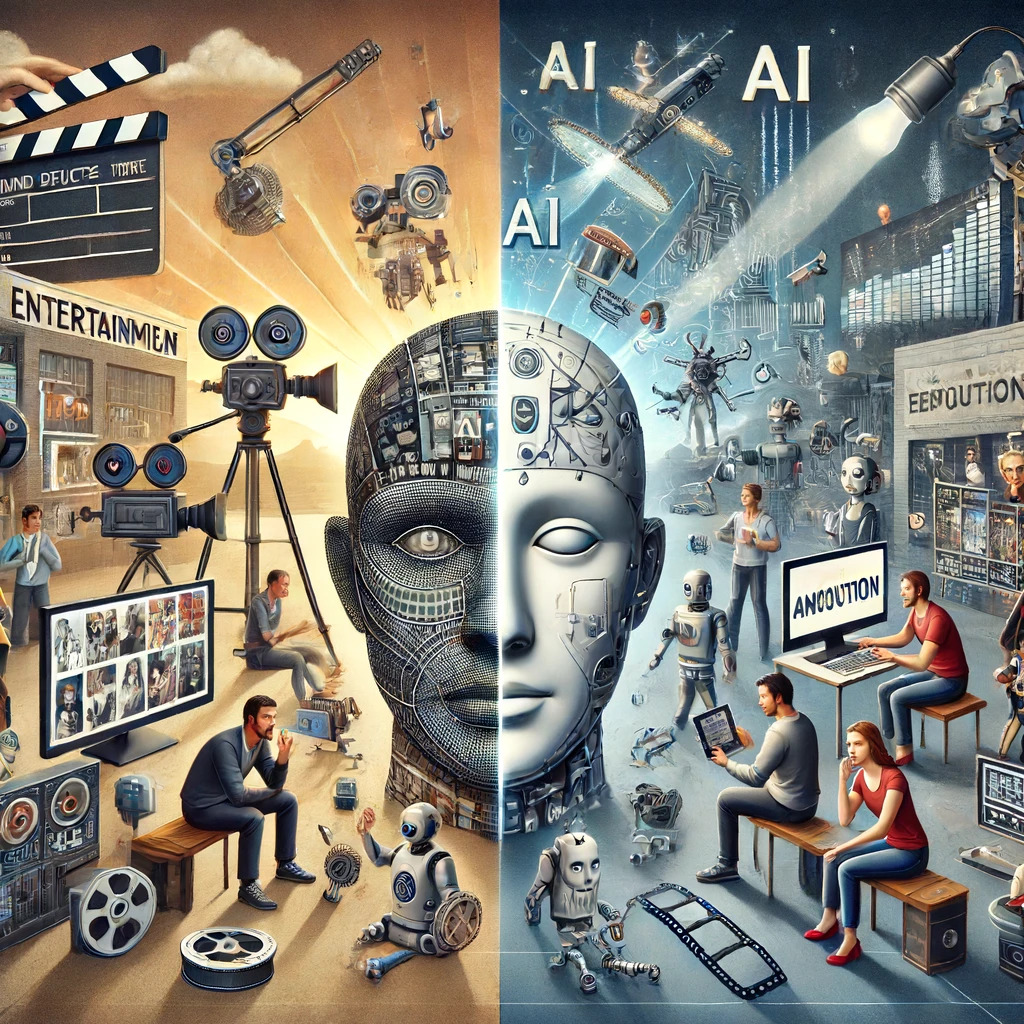In the rapidly evolving landscape of entertainment, generative artificial intelligence (AI) has emerged as a controversial yet pivotal tool. Recent survey data, conducted by Variety Intelligence Platform in collaboration with HarrisX, reveals a divided consumer base in the United States regarding AI-assisted content creation in film and television. This article delves into the intricacies of these mixed reactions, providing a comprehensive understanding of the current sentiment towards AI in entertainment and its potential implications for the industry.
Consumer Sentiment Towards AI in Media
General Acceptance and Skepticism
The survey highlights a significant split in consumer attitudes towards AI-generated media. Approximately 20% of Americans are open to AI-assisted media creation, while a larger segment remains skeptical. Notably, 36% of respondents expressed a decreased likelihood of watching AI-written content, contrasting with 23% who showed increased interest. This division underscores the complexity of consumer acceptance of AI in entertainment.
Influence of Familiarity and Usage
Consumer familiarity and regular interaction with AI tools play a crucial role in shaping their perceptions. Those who frequently use AI technologies tend to have a more favorable view of AI-generated content. For instance, users with paid AI subscriptions rated their acceptance at 3.68 on a 5-point scale, compared to a 2.53 rating from individuals less engaged with AI tools. This finding suggests that increased exposure and understanding of AI may lead to greater acceptance over time.
Selective Openness to AI in Production
Specific Production Elements
The survey indicates that consumer openness to AI varies across different production elements. There is a noticeable comfort with AI when it enhances specific aspects of content, such as sound effects, animation illustrations, and special effects. AI-generated dubs that replicate original actor voices or improve lip-syncing in dubbed performances are also generally well-received. This selective acceptance highlights the potential for AI to augment rather than replace human creativity in certain areas of production.
Case Studies and Public Reactions
Despite some openness, the entertainment industry remains cautious about publicizing AI use, fearing potential backlash. Historical examples illustrate this caution. For instance, the horror movie “Late Night With the Devil” faced a boycott after it was revealed that AI was used to create certain images. Similarly, the “Doctor Who” series retracted AI-written promotional emails, and Disney faced criticism over AI usage in a “Loki” promotional poster. These instances reflect the delicate balance studios must maintain when integrating AI into their creative processes.
The Future of AI in Entertainment
Consumer Influence and Industry Adaptation
As AI technology continues to evolve, consumer acceptance will play a crucial role in shaping its integration into entertainment. Studios and content creators are likely to weigh consumer sentiment heavily as they navigate the use of AI in their workflows. The evolving landscape suggests that consumer acceptance may fluctuate as they become more aware of AI’s capabilities and implications.
Recommendations for Studios and Content Creators
- Transparent Communication: Studios should consider transparent communication strategies about AI use in content creation to build trust and manage expectations.
- Selective AI Integration: Focusing on AI applications that enhance rather than replace human creativity, such as special effects and dubbing, may foster greater consumer acceptance.
- Ongoing Consumer Engagement: Regular engagement with consumers to understand their evolving perceptions of AI can help studios make informed decisions about AI integration.
AI vs Old School Creation of Entertainment
The use of generative AI in entertainment remains a contentious issue, with a clear division in consumer sentiment. While familiarity with AI tools tends to increase acceptance, there is still significant skepticism that studios must navigate carefully. By focusing on transparent communication, selective AI integration, and ongoing consumer engagement, the entertainment industry can better align with consumer preferences and harness the potential of AI to enhance content creation.


